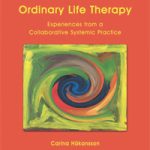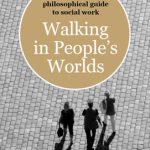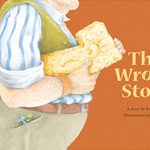Widely regarded as the state-of-the-science reference on attachment, this handbook interweaves theory and cutting-edge research with clinical applications. Leading researchers examine the origins and development of attachment theory; present biological and evolutionary perspectives; and explore the role of attachment processes in relationships, including both parent–child and romantic bonds. Implications for mental health and psychotherapy are addressed, with reviews of exemplary attachment-oriented interventions for children and adolescents, adults, couples, and families. Contributors discuss best practices in assessment and critically evaluate available instruments and protocols.
Contents:
- I. Overview of Attachment Theory
- 1. The Nature of the Child’s Ties, Jude Cassidy
- 2. Attachment Disruptions, Reparative Processes, and Psychopathology: Theoretical and Clinical Implications, Roger Kobak, Kristyn Zajac, & Stephanie D. Madsen
- 3. Attachment, Loss, and Grief: Bowlby’s Views, New Developments, and Current Controversies, R. Chris Fraley & Phillip R. Shaver
- 4. The Internal Working Model Construct in Light of Contemporary Neuroimaging Research, Inge Bretherton & Kristine A. Munholland
- II. Biological Perspectives
- 5. Attachment Theory within a Modern Evolutionary Framework, Jeffry A. Simpson & Jay Belsky
- 6. Psychobiological Origins of Infant Attachment and Its Role in Development, H. Jonathan Polan & Myron A. Hofer
- 7. Attachment in Rhesus Monkeys, Stephen J. Suomi
- 8. Attachment, Parenting, and Genetics, Marian J. Bakermans-Kranenburg and Marinus H. van IJzendoorn
- 9. Attachment and Psychoneuroimmunology, Katherine B. Ehrlich, Gregory E. Miller, Jason D. Jones, & Jude Cassidy
- 10. Attachment and Temperament as Intersecting Developmental Products and Interacting Developmental Contexts Throughout Infancy and Childhood, Brian E. Vaughn & Kelly K. Bost
- 11. Studying the Biology of Human Attachment, Amie A. Hane & Nathan A. Fox
- 12. Toward a Neuroscience of Attachment, James A. Coan
- III. Attachment in Infancy and Childhood
- 13. Normative Development: The Ontogeny of Attachment in Childhood, Robert S. Marvin, Preston A. Britner, & Beth S. Russell
- 14. Precursors of Attachment Security, R. M. Pasco Fearon & Jay Belsky
- 15. Attachment Relationships in the Context of Multiple Caregivers, Carollee Howes & Susan Spieker
- 16. Early Attachment and Later Development: Reframing the Questions, Ross A. Thompson
- 17. Attachment in Middle Childhood, Kathryn A. Kerns & Laura E. Brumariu
- 18. The Measurement of Attachment Security and Related Constructs in Infancy and Early Childhood, Judith Solomon & Carol George
- IV. Attachment in Adolescence and Adulthood
- 19. The Multiple Facets of Attachment in Adolescence, Joseph P. Allen & Joseph S. Tan
- 20. Pair Bonds as Attachments: Mounting Evidence in Support of Bowlby’s Hypothesis, Debra M. Zeifman & Cindy Hazan
- 21. Adult Romantic Attachment: Developments in the Study of Couple Relationships, Judith A. Feeney
- 22. Attachment and Sexual Mating: The Joint Operation of Separate Motivational Systems, Gurit E. Birnbaum
- 23. Same-Sex Romantic Attachment, Jonathan J. Mohr & Skyler D. Jackson
- 24. Adult Attachment and Emotion Regulation, Mario Mikulincer & Phillip R. Shaver
- 25. Attachment in Middle and Later Life, Carol Magai, Maria Teresa Frías, & Phillip R. Shaver
- 26. The Adult Attachment Interview: Protocol, Method of Analysis, and Empirical Studies: 1985-2015, Erik Hesse
- 27. Measurement of Individual Differences in Adult Attachment, Judith A. Crowell, R. Chris Fraley, & Glenn I. Roisman
- V. Psychopathology and Clinical Applications
- 28. Attachment and Psychopathology in Childhood, Michelle DeKlyen & Mark T. Greenberg
- 29. Attachment Disorganization from Infancy to Adulthood: Neurobiological Correlates, Parenting Contexts, and Pathways to Disorder, Karlen Lyons-Ruth & Deborah Jacobvitz
- 30. Challenges to the Development of Attachment Relationships Faced by Young Children in Foster and Adoptive Care, Mary Dozier & Michael Rutter
- 31. Attachment States of Mind and Psychopathology in Adulthood, K. Chase Stovall-McClough & Mary Dozier
- 32. Prevention and Intervention Programs to Support Early Attachment Security: A Move to the Level of the Community, Lisa J. Berlin, Charles H. Zeanah, & Alicia F. Lieberman
- 33. Attachment and Adult Psychotherapy: Theory, Research, and Practice, Arietta Slade
- 34. Reconciling Psychoanalytic Ideas with Attachment Theory, Peter Fonagy, Patrick Luyten, Elizabeth Allison, & Chloe Campbell
- 35. Couple and Family Therapy: An Attachment Perspective, Audrey Brassard & Susan M. Johnson
- VI. Systems, Culture, and Context
- 36. Caregiving, Brooke C. Feeney & Susan S. Woodhouse
- 37. Cross-Cultural Patterns of Attachment: Universal and Contextual Dimensions, Judi Mesman, Marinus H. van IJzendoorn, & Abraham Sagi-Schwartz
- 38. A Lifespan Perspective on Attachment and Care for Others: Empathy, Altruism, and Prosocial Behavior, Phillip R. Shaver, Mario Mikulincer, Jacquelyn T. Gross, Jessica A. Stern, & Jude Cassidy
- 39. Attachment and Religious Representations and Behavior, Pehr Granqvist & Lee A. Kirkpatrick
- 40. Divorce through the Lens of Attachment Theory, Brooke C. Feeney & Joan K. Monin
- 41. Attachment and School Readiness, Amanda P. Williford, Lauren M. Carter, & Robert C. Pianta
- 42. Implications of Attachment Theory and Research for Child Care Policies, Michael Rutter & Camilla Azis-Clauson
- VII. Perspectives on Attachment
- 43. The Place of Attachment in Development, L. Alan Sroufe
Author Bio:
Jude Cassidy, PhD, is Distinguished Scholar-Teacher and Professor of Psychology at the University of Maryland, College Park, and Director of the Maryland Child and Family Development Laboratory. Her research interests include socioemotional development from infancy through adolescence, with an emphasis on attachment and family relationships; social, cognitive, and regulatory mechanisms through which children’s early family experiences come to influence later well-being and relationships; and early intervention designed to reduce the risk of insecure attachment and mental disorders. Her research has been funded by the National Institute of Mental Health, the National Institute of Child Health and Human Development, the National Institute on Drug Abuse, the Substance Abuse and Mental Health Services Administration, and the Zanvyl and Isabelle Krieger Fund.
Phillip R. Shaver, PhD, is Distinguished Professor Emeritus of Psychology at the University of California, Davis. He has published several books, including Handbook of Attachment, Third Edition, and over 250 journal articles and book chapters. Dr. Shaver’s research focuses on attachment, human motivation and emotion, close relationships, personality development, and the effects of meditation on behaviour and brain. He is a fellow of both the American Psychological Association and the Association for Psychological Science, and has served as executive officer of the Society of Experimental Social Psychology (SESP) and as president of the International Association for Relationship Research (IARR)





